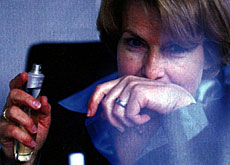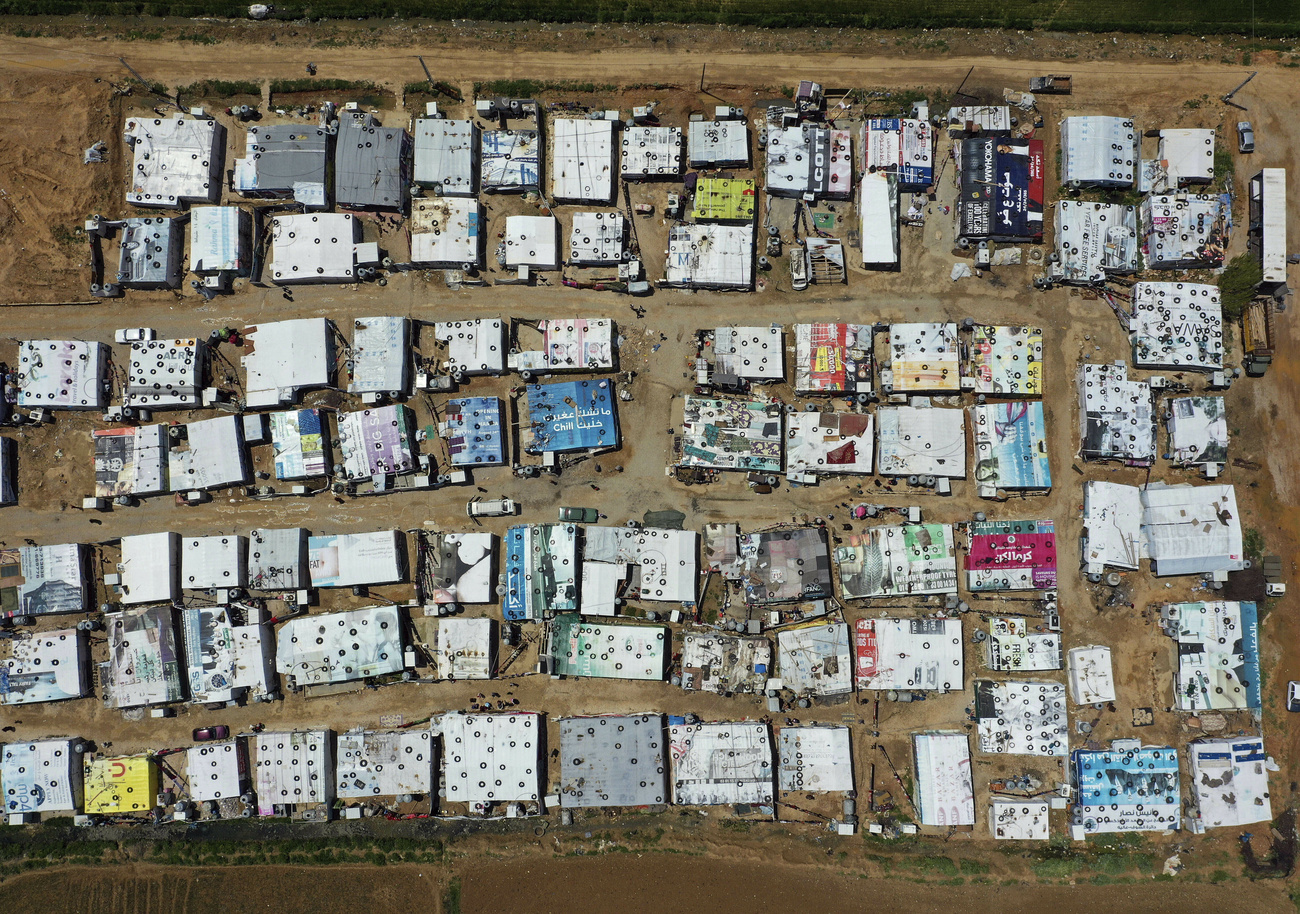
Givaudan perfumer has nose for success

Ursula Wandel – a perfumer at the Swiss company Givaudan – says that making a successful perfume is an art which relies on more than just a "good nose."
The expert is constantly on the track of a fragrance to become the new best seller in the highly competitive global perfume market.
Wandel is a senior perfumer at the Geneva-based Givaudan, the world’s largest producer of flavours and fragrances.
Speaking at a recent event at the company’s facility at Kempthal near Zurich, she explained some of the secrets of her trade.
Considered one of the top in her profession, Wandel is the name behind five perfumes by Nina Cerutti and the perfumes created for supermodels Cindy Crawford and Naomi Campbell.
But perhaps her most successful fragrance to date is “Hugo Woman” by Hugo Boss.
Benchmark
Introduced in 1997, it has been described as “a fruity floriental with a freewheeling spirited personality” but Wandel is much more down-to-earth about the properties that have made it a benchmark in its class.
“This was at a time when we made aquatic or watery perfumes… This was a new direction and it was a little bit wet, a little bit melony and a little bit sweet, juicy,” Wandel told swissinfo.
And before other perfumers could jump on the bandwagon, Wandel came up with another winner for Hugo Boss, “Boss Intense”.
“I think there’s a real success when the coordination is perfect. The advertising must be coherent with the perfume and the bottle also plays a role”.
“If all this goes together, you already have the basis for success,” she explained.
Come and go
In today’s world, perfumes come and go as fashion and trends change, although some have withstood the test of time.
Givaudan’s creation “L’Air du Temps” for Nina Ricci is still going strong after being on the market for almost six decades. But most disappear from the shelves after the novelty has worn out.
“Today everybody wants success and it’s more and more difficult,” said Wandel.
“Everybody wants a slice of the cake and so the perfumers take a good, best-selling perfume and they make little babies from them,” she added.
“They are all a little bit similar and people become tired of them if they become too difficult to distinguish from each other.”
Chance
Wandel said she came to her trade by chance. “I am very curious and put my nose everywhere.”
“First I studied chemistry and then I was really interested in photography and the two things together brought me to the Givaudan perfumery school in Geneva.”
The first year of her course was spent getting a nose for about 3,000 natural and synthetic raw materials, while the second was devoted to making imitations.
“It’s like painting. The painter first has to imitate the old master to see how it’s done. We did imitations of some of the big perfumes and then in the third year we did our own little creations, trying to develop our own style,” she said.
Wandel later trained under a master perfumer and spent time in Asia before coming back to Europe.
Despite her olfactory prowess, she believes that anyone with a normal nose can train to become a perfumer, although it is a long process.
“It’s like jogging. If you run 20 kilometres every day, you are much better after a few months. We also are training every day and so you become better and better.”
Patience
“The thing is you have to be curious and you have to have a lot of patience. This is really important,” explained Wandel.
The birth of a perfume can be easy or complex and it can take a year or even up to four years. There is also no patent on the recipes for perfumes.
And talking of recipes, Wandel sees a connection between creating a perfume and putting together a good meal in the kitchen.
“You need a base like a sauce, a fond, then you put the body on it and then you put a top on it or a roof,” she said.
The perfumer knows instinctively when the scent is leading her towards a perfume that will attract buyers.
“That’s it!”
“I think there’s a moment when you have done a lot of trials, maybe 300 to 400, when you smell and you say: That’s it! There is a harmony somewhere. It’s emotion. You feel something,” Wandel told swissinfo.
Wandel admits that she works late in the evening preparing her samples for the following day, but she says it does have its rewards.
“The best part of my job is to come every morning into my office and smell all my trials and all my creations that I did the evening before. That’s really a pleasure for me.”
swissinfo, Robert Brookes in Kempthal
Léon Givaudan founded the company in 1898, but can trace roots back to the French Revolution.
The Roche pharmaceutical company of Basel acquired Givaudan in 1963.
Givaudan was spun off from Roche in June 2000 and is now an independent company, traded at the Swiss Stock Exchange.
In 2002 the company acquired Nestlé’s flavour business FIS.
The word “perfume” is derived from the Latin per fumus, meaning “through smoke.”
Ursula Wandel’s favourite perfume is “Mitsouko” from Guerlain. Introduced in 1919, it is classified as a “refined, woody, mossy fragrance”.
The credo of Givuadan’s fragrances division is to “make the world smell better”.

In compliance with the JTI standards
More: SWI swissinfo.ch certified by the Journalism Trust Initiative































You can find an overview of ongoing debates with our journalists here . Please join us!
If you want to start a conversation about a topic raised in this article or want to report factual errors, email us at english@swissinfo.ch.